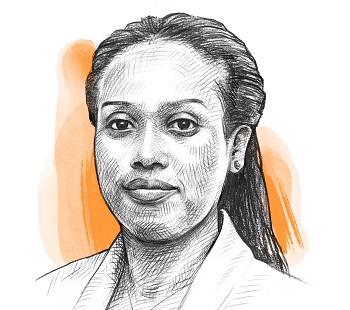Pilot Project for the Redeployment of Decentralized Services, Enhancement of Social Cohesion and Early Recovery in the Central African Republic
Objective
-
€ 3,7mBUDGET
-
02/05/2016PROJECT START
-
30 monthsDURATION
This project is being implemented in 2 regions and aims to support the redeployment of the local authorities, the strengthening of consultation, justice and the media, and socioeconomic recovery. Through this objective, it will promote the stabilisation and early recovery of Central African society by building local capacities and dialogue in the short and medium term.
Between 2012 and 2013, the Central African Republic (CAR) experienced an unprecedented political and military crisis, resulting in the deaths of thousands of people and forcing many population displacements of both internally displaced people and refugees. This country with 4.6 million inhabitants, shaken by various political and military crises since its independence in 1960, currently appears to be on a path towards stabilisation.
Expertise France is supporting CAR, and particularly the Government, and addressing the most immediate needs to ensure sustainable peace and economic and social recovery by conducting a pilot project for the Redeployment of Decentralized Services, Enhancement of Social Cohesion and Early Recovery in the Central African Republic.
This project’s cross-cutting and participatory approach will promote the stabilisation and early recovery of Central African society by building local capacities and dialogue in the short and medium term.
3-phase approach
The project is being implemented in three separate phases:
• Phase I – “Diagnostic”: mapping of actors and strengthening of local partners;
• Phase II – “Stabilisation”: redeployment of local authorities and strengthening of local consultation frameworks;
• Phase III – “Recovery”: restoration of local basic services and local economic recovery.
Berberati and Bria were selected on the basis of necessity and feasibility criteria, following a diagnostic of local and central administrations and civil society representatives conducted by a team of experts in 2016.
Promoting the recovery & stabilisation of Central African society
Redeploy decentralised State services, build their capacities and rehabilitate working facilities
• Improve local governance to revitalise local coordination bodies and frameworks
• Build the skills of decentralised services (planning, steering, management, etc.)
• Build or rehabilitate safe and healthy administrative buildings
Strengthen social cohesion by supporting legal, media and civil society actors
• Promote dialogue by strengthening local Peace and Reconciliation Committees
• Raise community awareness of stereotypes and stigmatisation (radio programmes, participatory theatre)
• Strengthen local civil society in terms of citizen oversight of public action and advocacy
• Train radio staff in the fundamentals and techniques of journalism
• Build the capacities of local actors working on access to law and justice, with a focus on alternative methods of settling disputes
Promote economic recovery in regions by supporting microprojects
• Prepare local development plans
• Assist in setting up and financing microprojects for the provision of basic services and reactivation of economic activity
• Build the skills of the actors of these microprojects in project management, administrative management and financial management
• Monitor these microprojects to ensure their activity is sustainable.
This project is financed by the Bêkou Fund, the European Union (EU) trust fund for the Central African Republic. This fund was designed to expand the range of tools of the European aid system, in order to develop an innovative method together to address crises. It mobilises various sources of financing in the EU and collects contributions from both Member States and donors from third countries. The EUR 136m Bêkou Fund supports the Government and Central Africans, with a focus on access to essential services, economic recovery, agriculture and food security, reconciliation and women’s empowerment. Since it was set up in July 2014, the Bêkou Fund has already benefited over 500,000 men and women in the Central African Republic.




